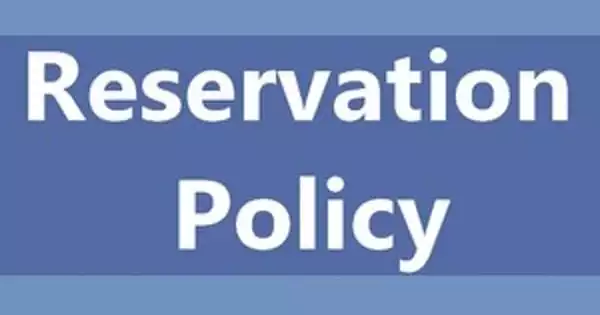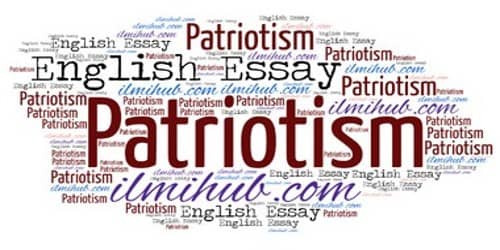The Indian Constitution does grant special rights to the oppressed sections of society known as Scheduled Castes and Scheduled Tribes. The special provisions were primarily for a ten-year period beginning with the date the constitution went into effect. There is no time limit for the continuation of this benefit. The ten-year period of constitutional safeguards was repeatedly extended by ten years before the previous ten-year period expired.
According to historians, occupations were the most important factor in the development of the caste system. Occupations were classified according to their social standing. The system became very rigid because it was initially based on Karma and the percentage of the Gunas; Sattva, Rajas, and Tamas. Under the Government of India Act 1935, it was proposed during the British reign that the Scheduled Castes be treated as a separate community and given separate representation. However, Gandhiji’s historic fast prevented it. Following independence, the Constituent Assembly established the Advisory Committee on Fundamental Rights and Minorities, which was chaired by Sardar Vallabhbhai Patel. The Committee recommended special privileges to the Scheduled Caste and Scheduled Tribe for a limited period of 10 years.
The privileges were intended to benefit the lower castes, but they have become a source of gross abuse in the hands of self-centered politicians and so-called Dalit leaders. Dalit leaders argue that because the upper castes have suppressed the lower castes for a long time, they must now suffer equally for a long time. Some argue that reservation is a political, social, economic, and constitutional policy that seeks to provide justice by integrating SCs and STs into the social mainstream.
The Supreme Court ruled in 1992 that reservation quotas could not be used in promotions of government employees after 1997, but Parliament restored the scheme of reservation for SCs and STs in promotions through the 86th Amendment bill. OBCs have also been granted additional reservations by the government (Other Backward Classes). Mr. Atal Bihari Vajpayee, our Prime Minister, recently stated that “in an unequal society where the Scheduled Castes, Scheduled Tribes, and OBCs are still suffering from historical disabilities, what they want is Social Justice and empowerment, not mere welfare.”
Whatever Mr. Vajpayee’s intentions, the question is whether social justice can be restored to such cross-sections of society at the expense of gross injustice to the rest. The very concept of reservation contradicts the essence of the Indian Constitution’s Preamble, which promises equality of status and opportunity.
It was hoped that by granting privileges in the Constitution for a limited time of ten years, the feeling of casteism would dissipate. However, even after 55 years of independence, reservation based on birth has accelerated the widening gap, caste differences, and hatred between different castes. After fifty-five years of reservations, these Scheduled Castes and Scheduled Tribes now hold the majority of the higher positions in government offices and institutions. In many cases, their hatred for the upper caste has been openly expressed.
This could not possibly be our forefathers’ vision. Reservation has led to mediocrity and a rejection of quality. The ‘not so eligible’ have risen to high positions with the help of legislative support for reservation, while the better qualified, with high marks, are simply facing the injustice being done to them. There is a strong sense of dissatisfaction among the educated urban middle class, who are repeatedly victimized by their privileged counterparts.
Reservation based on birth has repeatedly resulted in benefits to previously benefited families. Once a person of a reserved caste receives the benefit, his social and economic status rises; however, his family members now receive the benefit as well, depriving other needy members of his own caste.
India has maintained quotas for socially disadvantaged classes in government jobs, political bodies, and educational institutions for more than a half-century. Brahmins and other ostensibly privileged groups were left to their own devices. However, in the state of Rajasthan, the government recently proposed an idea that some say contradicts the logic of affirmative action: it wants quotas for high-caste Indians, albeit based on economic need.
Supporters claim they are simply attempting to make the system more equitable. However, many people see the initiative as yet another example of how interest-group politics is undermining the goals of a massive social engineering experiment that already gives preferential treatment to roughly half of India’s billion-plus people.
The problems began in 1990 when Parliament passed legislation reserving an additional 27 percent of government jobs for members of 3,743 lower castes, or “Other Backward Classes.” The law enraged young upper-caste Indians, who saw it as a threat to their job prospects.
The Supreme Court’s approval of the expanded quota system came with the condition that 50 percent of government jobs be filled solely on merit. The court also established a National Commission on Backward Classes, which has added 676 “socially and educationally disadvantaged castes” to the original list so far.
The Commission considers factors such as literacy rates, the prevalence of child marriage, and more obscure benchmarks such as whether widows are allowed to remarry when deciding which groups to include on the list (considered a sign of backwardness because upper-caste widows typically do not remarry).
The procedure may appear arbitrary. Despite a history of discrimination, India’s Muslim minority, for example, is outside the caste system and thus has been largely excluded from quota policies. Other groups, however, have been overlooked because “they are so backward, they have no knowledge of the system,” according to Ram Surat Singh, the Commission’s chairperson. In some states, some cases are considered backward, while others are considered forward.
In the mid-1990s, for example, Rajasthan’s Jats applied to be included on the list of backward classes. According to Dharam Vir, a Jat leader, they cited 1931 census data showing that child marriage was more common in their community than in other officially backward castes.
The Commission recommended to Parliament in 1997 that the Rajasthan Jats be included on the list. But it wasn’t until two years later, during a tense election campaign, that Vajpayee promised to keep the promise, following massive rallies by the large and well-organized Jat community.
Although many Jats were tenant farmers before independence, many now own land as a result of post-independence agricultural reforms and are thus better off than many from higher castes who do not own land, according to government officials.
“The Jats received the reservation as a result of their agitation and political power,” said C.P. Joshi, a Cabinet Minister in the State’s Congress Party government, which recently proposed a 14 percent quota for upper-caste poor in government jobs. “All parties are fighting for political survival, and they are using the reservation as a tool to do so.”
By establishing a Group of Ministers (GoM) to investigate the feasibility of a Constitution Amendment Bill to provide for job reservation to forward castes on economic grounds, the Union Government has sparked yet another debate over the concept of quotas. The decision to refer the matter to a GoM was made after Prime Minister Atal Bihari Vajpayee committed to a constitutional amendment during a public meeting in Rajasthan.
The Prime Minister’s pledge came in response to a resolution orchestrated by Rajasthan Chief Minister Ashok Gehlot, which recommended statutory changes to reserve 14 percent of Government jobs for the poor among the forward castes. Mr. Gehlot’s astute move put enormous strain on the Bharatiya Janata Party’s Rajasthan unit, even sparking an internal revolt. The Social Justice Front has been running a campaign on the same issue for some time, and it gained traction after Jats were added to the list of Other Backward Classes a couple of years ago.
Mr. Gehlot’s move established the terms of the debate in a state where the forward castes continue to play a significant role in determining election outcomes. With elections to the State Assembly scheduled for November 2003, the BJP could not have avoided making promises. The high level of unemployment is a general issue, but it is especially severe among people from the upper castes.
After all, the proportion of educated unemployed should be higher among forwarding castes than among castes who have been kept out of the education system for many years. Political parties across the political spectrum cannot afford to ignore this reality in an environment where the government is still viewed as a job creator. Add to that the sense of power that comes with government jobs in most parts of India, and it’s easy to see why people are desperate for such opportunities.
Affirmative action began on a positive note, with reservations only for SCs and STs for a limited period of ten years, but it has now devolved into a virtual free for all, with not only the backward but also a section of the so-called forwards vying for a piece of the cake. Politics has clearly triumphed over logic.
All of our social and religious reformers have attempted to dismantle casteism. It is regrettable that we are still unable to treat all men equally. Caste or racial discrimination has no place in the modern world. What matters are a person’s abilities and his contribution to society? By granting reservations to Dalits or Tribes, we are disadvantageously placing those who are more advantageously placed’ due to their birth in a particular caste.
Policymakers in the United States must be more pragmatic. Reservation of any kind should be abolished entirely; if it is necessary, it should be based on financial and economic status, not caste, creed, or birth, and benefits should reach the grassroots level, to the truly needy. Mr. Jefferson correctly stated, “That all men are created equal, that they are all endowed by the creator with certain unalienable rights, life, liberty, and the pursuit of happiness.”
















